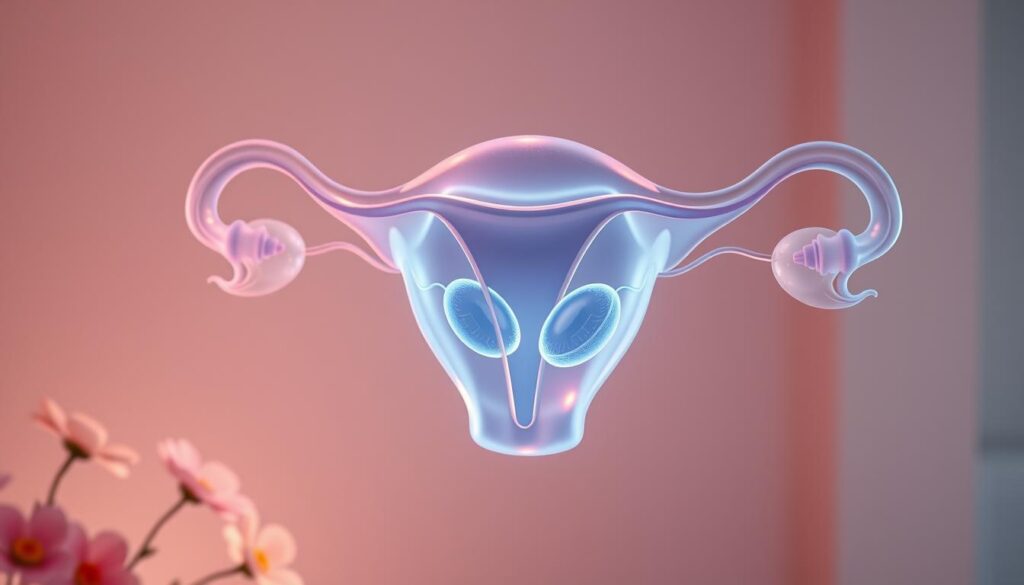The journey to becoming parents can be full of ups and downs. For couples dealing with infertility, the road to pregnancy seems long and tough. But, there’s a gentle, science-backed way to help you get closer to your dream family. Intrauterine Insemination (IUI) might be the solution you’ve been looking for.
IUI is a game-changer for couples facing infertility. It’s a less invasive procedure that can boost your chances of getting pregnant. With the help of reproductive healthcare experts, IUI offers a caring and effective way to overcome infertility and achieve your dream of having a family.

If you’re looking into fertility options or have hit a roadblock, IUI could be the answer. This guide will explain the science behind IUI, what the process involves, and how it can help you and your partner achieve your dream of starting a family.
Keep Reading:
Healthy Smiles, Happy Lives: Dental Wellness
Understanding Intrauterine Insemination: A Comprehensive Overview
Intrauterine insemination (IUI) is a common way to help couples with infertility. It involves putting sperm directly into the woman’s uterus. This method is good for those with unexplained infertility, as it boosts their chances of getting pregnant.
The Science Behind IUI Treatment
The IUI process is simple. It puts sperm right into the uterus, skipping the usual hurdles. This makes it easier for sperm to meet the egg, helping with fertility issues.
Key Components of the IUI Process
The IUI process has a few main parts. It includes taking fertility meds, timing, and the insemination itself. The procedure is quick and easy, making it less stressful than other fertility treatments.
When to Consider IUI Treatment
Couples might choose IUI for unexplained or mild male infertility. It’s also an option for individuals or same-sex couples wanting to start a family. Knowing about IUI helps couples decide if it’s right for them.

IUI Treatment Help Couples Overcome Infertility: A Complete Guide
Couples facing infertility can find hope in Intrauterine Insemination (IUI) treatment. This guide shows how IUI can help improve conception rates. It also helps increase pregnancy chances for those struggling to conceive.
IUI is a gentle and less invasive method. It’s appealing to many couples. Unlike complex treatments, IUI Treatment focuses on improving the natural conception process. It places sperm directly into the uterus. This is great for those with unexplained infertility or enhancing natural conception efforts.
IUI is less stressful than other fertility treatments. It’s usually well-tolerated. Many couples find it easier and more emotionally supportive on their journey to parenthood. This can boost confidence and keep a positive outlook during treatment.
Fertility specialists provide a tailored approach with IUI. They evaluate each couple’s unique needs. This ensures the IUI treatment plan is designed to maximize the chances of successful conception.
The Benefits and Success Rates of IUI Treatment
Intrauterine insemination (IUI) is a natural way to boost fertility and increase pregnancy chances. It’s a gentle method for couples facing unexplained infertility. IUI Treatment uses assisted reproductive technology to help overcome fertility challenges and improve conception chances.
Statistical Analysis of IUI Success
Research shows IUI can lead to pregnancy rates of 10% to 20% per cycle. This success rate shows IUI’s potential to boost fertility and increase pregnancy chances. For couples struggling to conceive naturally,IUI Treatment can be a game-changer.
Factors Affecting Success Rates
Several factors can influenceIUI Treatment success, including the cause of infertility and the individuals’ health. Understanding these factors helps couples make informed decisions. This way, they can tailor their treatment plans to enhance pregnancy chances.
Age-Related Considerations
Age is a key factor in IUI success, with younger people generally having higher success rates. Yet, IUI remains an option for older individuals, requiring less intensive treatments than other fertility methods. Addressing age-related considerations helps couples approach IUI with realistic expectations and confidence in their journey to parenthood.
Cost-Effective Fertility Solutions: Why Choose IUI
Starting a family can be tough and expensive. But, there are affordable fertility options out there. Intrauterine Insemination (IUI) is one of them, helping couples with infertility solutions.
IUI is a cheaper choice compared to other fertility treatments. It’s less expensive than in vitro fertilization (IVF). This makes IUI a good option for those wanting to have a child.
The cost of IUI varies from $300 to $1,000 per cycle. This depends on the medication needed and where the clinic is. IVF, on the other hand, can cost much more, often tens of thousands of dollars.
Many insurance plans cover IUI more than other fertility treatments. This means couples might not have to pay as much out of pocket. This makes IUI a more affordable choice.
Choosing IUI lets couples start their family journey without breaking the bank. They can do this while still getting quality care and a good chance of success.
Preparing for IUI Treatment: Essential Steps
Starting the journey of intrauterine insemination (IUI) is exciting for couples hoping to boost their fertility naturally. It’s a hopeful step towards improving their chances of conception. But, getting ready properly is crucial for a smooth and successful process. Let’s look at the key steps to prepare for your IUI treatment.
Medical Evaluations and Tests
Before starting IUI treatment, a thorough medical check-up is essential. This includes blood work, hormone tests, and sometimes imaging scans. These tests help your doctor find out why you might be struggling to conceive. They then create a treatment plan just for you.
Lifestyle Modifications
Making some lifestyle changes can also help boost fertility naturally and increase your chances of success with IUI. Your doctor might suggest changes to your diet, exercise, and stress levels. These changes can improve your reproductive health.
Timing and Cycle Monitoring
The timing of the IUI procedure is very important. It must happen when you’re most fertile. Your healthcare team will help you track your cycle and find the best time for the insemination. Improving conception rates often depends on this timing, so it’s important to follow their advice.
By preparing well for your IUI treatment, you can boost your chances of success. This brings you closer to your dream of starting or growing your family.
Male Factor Infertility: How IUI Can Help
Dealing with male factor infertility is a big part of the journey to have a baby. Intrauterine insemination (IUI) is a helpful solution. It’s a gentle, less invasive way to tackle fertility issues like low sperm count or poor motility.
The IUI process is simple. Sperm is washed and concentrated, then placed gently in the woman’s uterus. This method helps get past any issues in the male reproductive system. It boosts the chances of successful fertilization. By improving sperm quality, IUI can help couples conceive.
IUI is a less stressful option compared to other treatments. The procedure is straightforward, and recovery is quick. This lets couples move forward with hope and confidence.
If you’re facing male factor infertility, consider IUI. With the help of fertility experts and a detailed treatment plan, overcoming male factor infertility is possible. You can start your family journey.
The Role of Fertility Medications in IUI Treatment
Intrauterine Insemination (IUI) is a common way to help couples with infertility. Fertility medications are a big part of this process. They work with IUI to increase the chances of getting pregnant.

Common Medications Used
Medications like clomiphene citrate, letrozole, and gonadotropins are used in IUI. Clomiphene and letrozole help the ovaries make more eggs. Gonadotropins are injected hormones that help even more. The right medication depends on the person’s age, how well their ovaries work, and their past fertility.
Managing Side Effects
Fertility meds can cause side effects like mood swings or hot flashes. Doctors keep a close eye on these and help manage them. It’s important to talk openly with your doctor about any side effects.
Monitoring Response to Treatment
It’s key to check how the body reacts to these medications. Doctors use ultrasounds and blood tests to see how well the treatment is working. This helps them adjust the treatment to improve the chances of getting pregnant.
Understanding the role of fertility meds in IUI can make couples feel more in control. This assisted reproductive technology can greatly help those trying to conceive.
Natural vs. Stimulated IUI Cycles: Which Is Right for You?
Couples have two choices to boost fertility naturally and improve conception rates. They can pick between natural and stimulated IUI (intrauterine insemination) cycles. Knowing the good and bad of each can help you choose wisely, fitting your fertility goals and health.
A natural IUI cycle lets your body lead the way. It’s great for couples with unexplained infertility. It boosts your natural efforts without the stress of fertility meds. With your healthcare team’s help, natural IUI cycles can be a positive journey.
Stimulated IUI cycles, however, use fertility meds to help follicles grow. This might help if you have hormonal issues or irregular ovulation. These cycles offer a more structured way, possibly leading to better success rates.
Choosing between natural and stimulated IUI cycles depends on your situation, fertility history, and what you prefer. Your healthcare provider can help weigh the pros and cons. They’ll guide you to the best path for your journey to parenthood.
Recovery and Post-Treatment Care Guidelines
Going through iui treatment is a delicate journey. But with the right help, couples can feel strong and supported. After the procedure, knowing what to expect and how to boost pregnancy chances is key.
What to Expect After the Procedure
After iui treatment, you might feel some mild cramping or discomfort. It’s like the feeling during a routine pelvic exam. This is normal as your body adjusts.
It’s best to relax for the rest of the day. Let your body rest and recover.
Signs of Success and When to Test
As your body gets used to the iui treatment, you might notice some signs. These could be slight changes in basal body temperature, implantation spotting, or more cervical mucus. But remember, everyone’s experience is different.
It’s usually best to take a pregnancy test about 14 days after the insemination. This is when hormone levels are most accurate.
Knowing the recovery process and looking out for success signs can make the post-treatment period easier. It helps couples overcome infertility and enhance pregnancy chances. With their healthcare team’s help, they can feel empowered and supported on this journey.
Comparing IUI with Other Fertility Treatments
Couples facing infertility have many fertility treatments to choose from. These include Intrauterine Insemination (IUI) and assisted reproductive technology like In Vitro Fertilization (IVF). Each method has its own benefits, and knowing the differences helps couples decide what’s best for them.
IUI is seen as a gentle and less invasive option. It involves placing sperm directly into the uterus. This is good for cases of unexplained infertility or mild male factor issues. It’s a way to help natural conception, keeping things simple and less stressful.
On the other hand, IVF is more complex. It involves taking eggs and sperm outside the body, then putting the fertilized eggs back in. It’s recommended for severe fertility challenges, like severe male infertility or advanced maternal age. While IVF might have higher success rates, it’s a more challenging process physically and emotionally.
Choosing between IUI and other fertility treatments depends on many factors. These include the couple’s medical history and personal preferences. By understanding each treatment’s strengths and weaknesses, couples can make the best choice with their healthcare providers. This helps them on their journey to becoming parents.
Emotional Support and Counseling During IUI Treatment
Going through infertility treatments can be tough. It’s key to focus on your emotional health during IUI. Look into ways to cope, build a strong support network, and manage your hopes. This can help you succeed and find strength in your journey.
Coping Strategies
Handling the ups and downs of IUI can be tough. Try stress-relieving activities like meditation, yoga, or deep breathing. Keeping a journal can also help you process your feelings. Don’t forget to seek counseling or join a support group to connect with others.
Building a Support Network
Surround yourself with people you trust, like family and friends. Share your journey with your partner and talk openly. Also, work closely with your healthcare team for guidance and support.
Managing Expectations
It’s vital to have realistic hopes about IUI. Success rates vary, so be prepared. Talk to your healthcare provider about setting goals and adjusting as needed. Every step is a chance to learn and grow, even if it’s not what you hoped for.






1 thought on “How IUI Treatment Can Help Couples to Overcome Infertility”